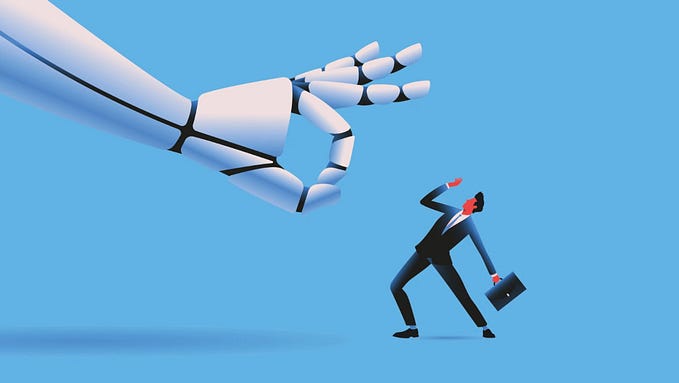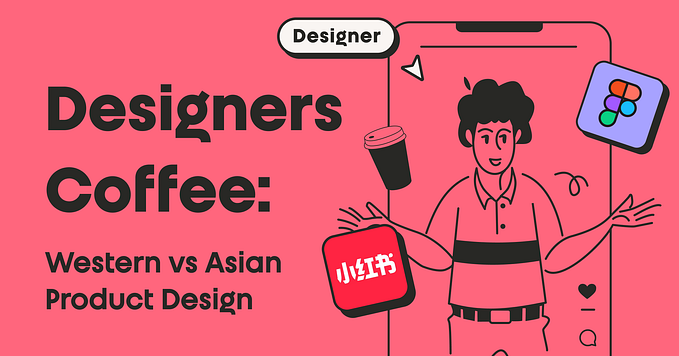On Layoffs

My company started the biggest layoff in its history this week, with said 10k jobs eliminated. Many designers, PMs, and Engs from my Linkedin timeline are impacted. For more context, read this NYT article, or Linkedin search “Amazon layoff”.
It’s a stressful time, with the overall climate for tech layoffs (think of Twitter & Meta lately, and Uber & Lyft from a year ago), and I’ve been seeing almost identical timeline posts from tremendous former co-workers. I think the situation is especially worse for early-career folks with several years of work experience, or directly hired after graduation. I wanna share my own experience and my reflections on dealing with layoffs since I’ve been impacted twice, once before COVID, and once during COVID. And this might offer a different perspective for those in need. (You never know, maybe this can be my respawn booster if I get laid off next year).
My first layoff
I was working as an Art Director at a magazine company. The company is a startup and I reported to the CEO directly. This is my first job in the U.S after graduating from the master's program. The pay is low (talking about minimum wage), but they sponsor H1b, which is the most important criterion at the time to me. I realized the company was not doing well when my boss can’t pay my salary on time. He started delaying it for a week, two weeks, and sometimes a month. I started asking him about it and got very ambiguous answers, and he always talked about some big opportunities for the business to come.
I gradually started looking for new jobs. I spent almost a year applying for jobs. Sent out 400+ cold applications. It’s extremely hard for a foreigner who has only several years of experience but needs visa sponsorship. I got fewer than 10 interviews, and 1 offer at last.
The offer came right around the time the CEO was to shut down the magazine company. But after the new company learned I needed visa sponsorship, they rescinded the offer. Not many companies in the midwest (Chicago for instance) understand H1b visa sponsorship, nor do they want to go the extra mile for the trouble. Then the CEO of the magazine company announced the company's gone broke and dismissed all employees. At the time, I was owed 6 months of salary.
That was a long winter. I couldn’t afford to pay tax returns. I had $1000 in my bank account. I had 2 months before I would be deported from the U.S. I was a graphic designer, and I couldn’t find any jobs.
A month passed, and suddenly I got a call from the company that rescinded my offer. It was from the design director who interviewed me, not HR. He told me he was fighting to get me into the company, and finally, after several months, the leadership agreed to sponsor me with a work visa. Thanks to him, I didn’t get deported from this country.
My second layoff
After my first layoff, I realized although paper media is my passion, I have to build more versatile skillsets in digital design. I started learning about user experience design (or web/digital design at the time). After a few years, I transitioned into a full-time UX design role at a marketing agency, leading a UX team of two.
I was hired by the VP of digital business at the company, who was leading all UX projects and the tech department. Unfortunately, soon after I was hired, he left the company to start his own business. And the company hired a new guy from traditional marketing to lead the creatives.
The new VP didn’t know anything about UX or digital products, so he focused on investing in mostly graphic design stuff. I was at one point doing packaging design for H&R Block. Another time making posters for BOA’s campaign, and some data visualizations. I told him many times in our 1–1 that I wanted to do digital product design, but we just don’t have that many projects coming in.
In early 2020 when the pandemic hit, the marketing agency furloughed 1/3 of its employees and laid off another 1/3. I was on the layoff list. Got a zoom call with the VP and HR for only 5 mins to inform me I was laid off. Hung up the call, and found I lost access to Slack, emails, internal servers, etc immediately. I wasn’t even able to say goodbye to my co-workers. No severance, and no grace period. Lost health benefits immediately. I was back in the same situation as the first time, facing deportation in 60 days. Not quite I guess, this time I have a shoulder to cry on.
I was extremely lucky again.
I saw a layoff list on Linkedin which I can add my resume and contact info to. So I did. After a few days, a hiring manager reached out to me, and then I went through the interview process and the rest of the story you already know. I submitted my work visa application by the last day of my visa grace period, and thus I remained in this country again. Below is the post I wrote after going through the 2nd layoff.

My takeaways
Kendo has concepts such as Zanshin (as explained above), and also Heijōshin (平常心), which refers to the “everyday mind”. The definition is to keep one’s mind in a normal state, unaffected by things around you. Of course, it’s much easier said than done, but if we zoom out of the particular situation, and measure the impact against a lifelong time, it might be trivial, as we’re not just defined by work. I’m not trying to negate or undermine the layoff, but it could’ve been worse. Most people are given 60 days to find jobs internally, and there is severance pay. In my opinion, the priority is to get out of the defeating mindset as quickly as possible and reset for something better to come.
What has helped me to deal with the situation and my reflections(not an exhaustive list, just based on my own experience):
- Acknowledge the layoff is not your fault. You are as capable as the people who remained on the job. Stop questioning about “why me” or speculating why others get to keep their jobs because it’s hard to know what was discussed at the leadership level. Layoff sometimes happens to the best of us. All you can do is control your moves. After my 2nd layoff, I applied to 40+ companies in a short month. I was desperate so I applied to any companies I saw hiring. I still remember there was one super small local company that replied to me (not by bots) “We looked at your resume and portfolio and felt you’re not experienced enough for this job”. It was devastating, but I was running out of time, so I moved on, and I guess Amazon thought I was good enough.
- Prep for H1b situation. Usually, I heard from a visa standpoint, it starts to count towards the grace period from the last paycheck day. So you might get a little more time depending on when you get your last paycheck. (Still need to talk to your lawyer to confirm). For smaller companies, you might be able to negotiate with them to keep you on the payroll for a longer time (e.g take vacation times, instead of cashing it out). And when looking for new jobs, try not to let them know ahead of time that you need sponsorship (unless they mentioned explicitly in the JD they don’t sponsor or you need to tell them in advance). I had a personal experience where once I told HR I needed sponsorship they stopped the interview process. But if I went through the process and got the offer, there was usually more wiggle room.
- Save your contacts’ info when you’re still at your job. Don’t wait till the last minute like my 2nd layoff, and I lost the opportunity to say goodbye to my work friends. The same goes for saving your design work and docs you wrote periodically to your personal computer. Have a habit of documenting activities you led across different teams (e.g design sprint, workshops, etc). And any research data, and metrics that can help you quantify your “user problem” or “outcome” for your case studies in the works.
- Keep your resume and portfolio up to date in volatile times, especially if you’re on a work visa. When I was laid off the 2nd time, I didn’t see it coming. I didn’t update my folio or resume for 3 years, and I didn’t document any projects I’ve done at the company. It took me two weeks, 14hrs a day to rebuild my portfolio. It was painful.
- Understand your benefits after the layoff. If you’re on Cobra after your health benefits expire, know how much you need to pay, your eligibility for unemployment benefits (not recommended for visa holders), etc. Don’t forget about your RSUs, 401K, health savings account, reimbursements, etc.
- Try not to make one-way-door decisions. When making important decisions (e.g buy a house and pay the mortgage, start a family, global relocation, investment, etc), make sure you take into account the worst scenario of what could happen financially, and be okay with it. I’ve had some friends coming to Seattle from Mexico for a contractor job at Amazon. They brought all of their stuff and their families over, along with their pets. Now they had to leave the country only after several months of relocation.
- Don’t just focus internally. It’s very tempting to only stay connected internally at Amazon when the design community is so large, and we can find mentors, seminars, and training just within the company. Some former colleagues have only worked at Amazon, and once they started looking for other jobs or joining other companies, they were struck by the huge differences or culture shock from other companies. Some also asked me how to prepare for interviews now that they don’t have the Leadership Principles as guidelines. Learning about other functions, companies, and industries, getting a mentor from outside of your company, and building a support network as early as possible can help you understand the broader spectrum of things you can do outside of Amazon and know what to expect when you do. And most importantly, it helps you get referrals when you need them. I’ve been mentoring on adplist.com and have benefitted from consulting mentors from other companies there too.
To anyone that’s been laid off recently or is still in uncertainties, I just wanna let you know you’re not alone. Just remember, you’re as capable and valuable as others. We’re all in this together.
If we’ve worked together before in any capacity, I’m happy to write you an endorsement or recommendation letter, and provide support however I can.








